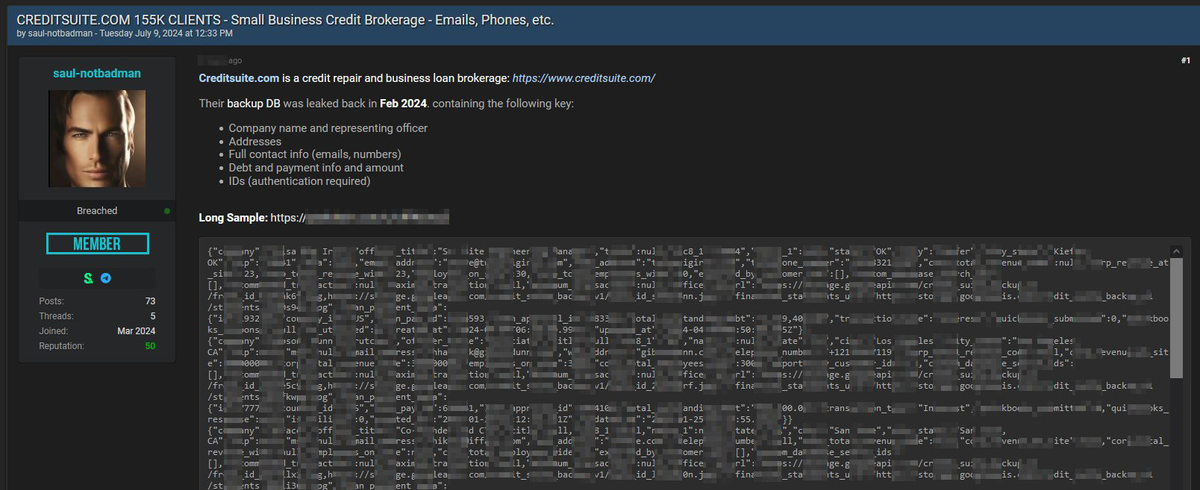
CreditSuite.com is a credit repair and business loan brokerage service that helps small businesses improve their credit profiles and secure financing. They provide a range of financial services, including credit monitoring, business credit building, and access to loans from various lenders.
Breach Details
Date of Breach: February 2024
Discovered: July 2024
Reported by: User "saul-notbadman" on a dark web forum
Breach Summary
CreditSuite.com experienced a data breach in February 2024, which resulted in the exposure of sensitive information belonging to approximately 155,000 clients. The compromised data includes:
- Company name and representing officer
- Addresses
- Full contact information (emails, phone numbers)
- Debt and payment information (amounts and payment details)
- IDs (authentication required for access)
Threat Actor Profile
The breach was reported by a dark web user known as "saul-notbadman." While specific details about this threat actor are limited, they have been active on dark web forums since March 2024, with a reputation score of 50. Their activity suggests a focus on monetizing stolen data, particularly from financial and business services.
Impact Analysis
The data breach at CreditSuite.com has several potential impacts:
- Financial Loss: Clients' sensitive financial information could be used for fraudulent activities, leading to significant financial losses.
- Identity Theft: Exposed personal information, such as IDs and contact details, increases the risk of identity theft for affected individuals.
- Reputational Damage: CreditSuite.com's reputation may suffer due to the breach, potentially resulting in a loss of client trust and a decline in business.
- Legal Consequences: The company may face legal actions and fines for failing to protect client data adequately.
Prevention Tips
To mitigate the risks associated with data breaches, businesses should implement the following measures:
- Enhanced Security Measures: Use advanced encryption techniques and multi-factor authentication to protect sensitive data.
- Regular Audits: Conduct regular security audits and vulnerability assessments to identify and address potential weaknesses.
- Employee Training: Train employees on cybersecurity best practices and how to recognize phishing attempts and other common attack vectors.
- Incident Response Plan: Develop and maintain a comprehensive incident response plan to quickly address and contain breaches when they occur.
- Customer Notification: Inform affected customers promptly and provide guidance on steps they can take to protect themselves.